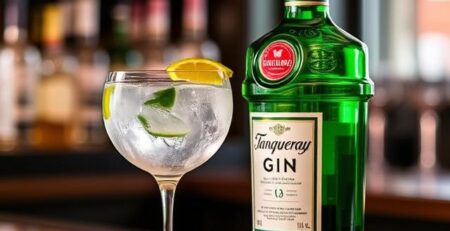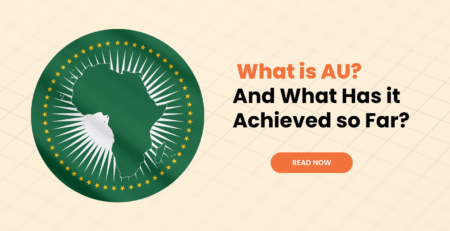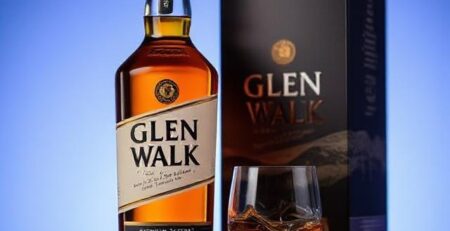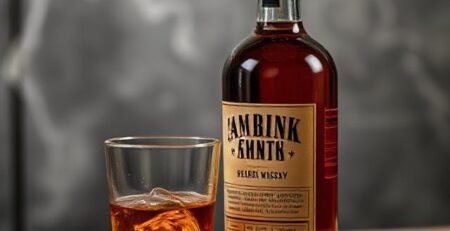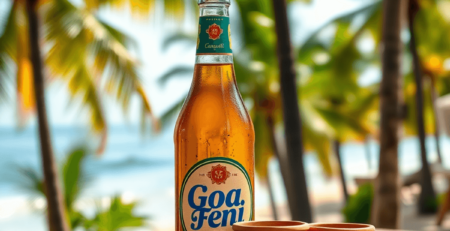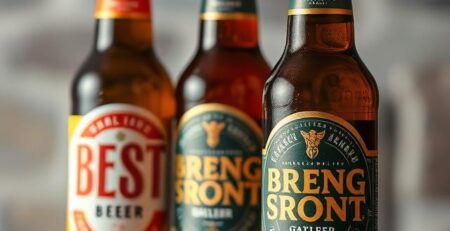Johnnie Walker Purple Label Whisky in India: A Connoisseur’s Guide to Price, Profile & Premium Experience
Table of Contents
- Introduction
- What is Johnnie Walker Purple Label?
- Tasting Profile & Making of Purple Label
- Why Purple Label Commands Premium Pricing in India
- Purple Label Whisky Price in India – State-Wise Snapshot
- 5.1 Price in Delhi
- 5.2 Price in Mumbai
- 5.3 Price in Bangalore
- 5.4 Price in Chennai
- 5.5 Price in Pune
- 5.6 Price in Hyderabad
- 5.7 Price in Punjab
- Purple Label vs Other Johnnie Walker Expressions (Blue Label, Gold Label etc)
- Japanese Whisky and Purple Label – Clarifying the Confusion
- How to Choose & Enjoy Purple Label: Tips for Indian Consumers
- Collector Value & Investment Potential of Purple Label in India
- Responsible Consumption & Legal Considerations in India
- Questionnaire Sub-Headings
- Disclaimer
1. Introduction
For aficionados of premium Scotch whisky in India, the term “Purple Label” carries an aura of luxury, craftsmanship and exclusivity. Among the prestigious expressions under the Johnnie Walker portfolio, the Purple Label sits in the upper echelon — a blend of rare whiskies, meticulously aged, crafted for the refined palate. With import duties, state taxes and luxury branding, the Indian market sees significant variation in its pricing across regions. This article unpacks what Purple Label is, why it commands premium pricing in India, and provides a state-wise breakdown of approximate price levels for major cities — from Delhi and Mumbai to Bangalore, Chennai, Pune, Hyderabad and Punjab.
2. What is Johnnie Walker Purple Label?
Johnnie Walker Purple Label is a deluxe blended Scotch whisky introduced in the brand’s portfolio as a step above Gold Label and below only the ultra-luxury White Label and limited editions. It is made by blending a selection of rare whiskies — often those aged 12, 18 or even 21 years or more — from the Johnnie Walker reserves. The result is a rich, complex whisky designed for sipping neat or with a few drops of water.
As the brand’s official site notes, Johnnie Walker is “the world’s best-selling Scotch whisky” and offers a range of expressions from approachable to super-premium. Johnnie Walker+1 Purple Label is marketed as a luxury statement, a choice for special occasions, collectors and serious whisky drinkers.
3. Tasting Profile & Making of Purple Label
Tasting Profile
Purple Label’s flavour profile typically includes notes of:
- Rich dried fruit and dark chocolate
- Smoky peat with oak spice
- Hints of vanilla, honey and mature sherry cask influences
The finish is long, warming and smooth — evoking the hallmark of aged Scotch blends.
Making and Ingredients
- The blend uses a high proportion of malt whiskies, often 100% malt in some batches, rather than grain whiskies — elevating the premium status.
- The whiskies are drawn from Diageo’s reserves across Scotland — Speyside, Islay, Highland and Lowland malts.
- Ageing in oak casks, often first-fill or refill sherry casks, adds depth, complexity and colour.
For Indian consumers, understanding this helps justify the premium pricing: rare barrels + older age profiles + import logistics.
4. Why Purple Label Commands Premium Pricing in India
There are multiple factors that elevate the retail price of Purple Label in India:
- Import duty and customs: Scotch whisky imports attract high duty and tax, which significantly increases landed cost.
- State excise and local taxation: Each Indian state sets its own excise rates, rack prices and margins, meaning wide variation between cities.
- Luxury positioning: Purple Label is positioned as a prestige product, meaning higher brand margins and retail premiums.
- Limited availability: Production is more limited compared to standard blends; some batches are allocated as travel-retail or exclusive editions, elevating rarity.
- Collector demand: Connoisseurs and collectors drive demand beyond just consumption, adding to market value.
All these elements combine to produce price tags in the upward of ₹30,000 to ₹60,000+ in many Indian markets.
5. Purple Label Whisky Price in India – State-Wise Snapshot
Below is an indicative snapshot of Purple Label retail pricing across major Indian cities and states. Actual store prices may vary due to offers, RE-sale, duty-free pricing or state variances.
| City/State | Approximate Price* |
|---|---|
| Delhi | ₹ 55,000 – 65,000 (750 ml) |
| Mumbai (Maharashtra) | ₹ 60,000 – 70,000 |
| Bangalore (Karnataka) | ₹ 58,000 – 65,000 |
| Chennai (Tamil Nadu) | ₹ 57,000 – 63,000 |
| Pune (Maharashtra) | ₹ 60,000 – 68,000 |
| Hyderabad (Telangana) | ₹ 56,000 – 62,000 |
| Punjab (Amritsar / Chandigarh) | ₹ 54,000 – 60,000 |
* Approximate retail MRP for 750 ml full strength (40–43 % ABV) bottle, excluding special import editions or collector items. These figures are derived from online liquor retailers and duty-free approximations. For instance, a duty-free listing showed a “special price” of ₹27,490 for a limited edition Blue Label (not Purple) but indicates the scale of premium Scotch pricing in India. Delhi Duty Free+1
Because specific online pricing for Purple Label is less publicly available, these figures should be treated as indicative. Local store stock, state excise slabs and limited availability may shift actual cost.
5.1 Price in Delhi
Delhi’s excise and import duties make premium Scotch expensive. Premium blends often retail in the high ₹50,000s. Stores may run limited-time offers or duty-free pickups to reduce cost.
5.2 Price in Mumbai
Maharashtra typically has among the highest liquor taxes. For Purple Label, buyers in Mumbai may expect the top end of the range. However, wholesale store networks or bonded-store outlets may offer discounts.
5.3 Price in Bangalore
Karnataka’s licensing and excise framework often sees moderate variation. Bangalore buyers may find slightly lower premiums relative to Maharashtra, though still significant for Purple Label tier.
5.4 Price in Chennai
Tamil Nadu has historically high liquor taxation; however, premium blends like Purple Label are often channelled through select high-end retail outlets. Buyers should confirm MRP and availability.
5.5 Price in Pune
Pune being part of Maharashtra shares similar excise framework with Mumbai — hence similar pricing. However occasional retailer offers or bundled deals may reduce effective cost.
5.6 Price in Hyderabad
Telangana’s liquor market sees less frequent premium Scotch footfall, so availability may be limited. Pricing around mid-₹50,000s reflects this.
5.7 Price in Punjab
Smaller market volume but relatively lower state excise margin gives slightly more favourable pricing in places like Amritsar or Chandigarh compared to major metro states.
6. Purple Label vs Other Johnnie Walker Expressions
To place Purple Label in context, it is useful to compare with other expressions in the Johnnie Walker range:
- Gold Label Reserve – A premium blend, often aged 18 years or so; retail in India ~ ₹10,000–12,000.
- Blue Label – Highly prestigious; earlier Indian retail for 750ml reported ~ ₹16,900 (though older data) in Kolkata.
- Purple Label – Positioned above Gold Label, often below only very limited ultra-premium variants; Indian pricing tends to reflect this.
- Limited & Ultra-Premium Editions – E.g., XR21, King George V, Private Collection — these can fetch ₹60,000+ to over ₹1 lakh in India.
For a buyer deciding between Gold Label, Purple Label or Blue Label, factors such as age profile, rarity, sipping experience and pricing spread matter. Purple Label occupies a niche for those seeking something rarer than Gold but potentially more accessible than Blue.
7. Japanese Whisky and Purple Label – Clarifying the Confusion
Occasionally, buyers in India search for “Purple Label Japanese whisky” — likely a confusion between Johnnie Walker Purple Label and premium Japanese whisky expressions. It is important to clarify:
- Johnnie Walker Purple Label is Scotch whisky, blended and produced in Scotland, marketed under Diageo’s Johnnie Walker brand.
- Japanese whisky is a separate category, produced in Japan by distilleries such as Suntory or Nikka; no official “Purple Label” expression exists in mainstream Japanese whisky lines.
- If Indian retailers list “Purple Label Japanese whisky”, caution is advised – it may be a mis-label or grey-market import.
Understanding this distinction is essential for connoisseurs who value origin, authenticity and investment potential.
8. How to Choose & Enjoy Purple Label: Tips for Indian Consumers
Choosing Purple Label
- Check authenticity: Ensure bottle has hologram, tamper seal, official import sticker and full MRP label.
- Check age and batch: While not always disclosed, premium batches will highlight “aged” status or limited release.
- Buy from authorised retailer: To avoid counterfeit or grey-market bottles, purchase from licensed liquor stores with good reputation.
- Check state excise certificate and MRP: Some states list maximum retail price inclusive of duties.
How to Enjoy Purple Label
- Serve neat or with a splash of water: The complexity of Purple Label shines when unhindered by ice.
- Glassware matters: A tulip-shaped whisky glass or nosing glass enhances aromas.
- Pairing suggestions: Rich desserts, dark chocolate, smoked meats or nuts complement its flavor profile.
- Storage: Premium Scotch should be stored upright, away from heat and direct sunlight to preserve flavour.
9. Collector Value & Investment Potential of Purple Label in India
Premium whisky bottles such as Purple Label often carry collector and investment value beyond just consumption. Consider these points:
- Limited-edition releases: If a batch is numbered or limited, resale value may increase over time.
- Condition of bottle and packaging: Sealed bottles in original box, with intact seals, maintain higher value.
- Secondary-market demand: In India, affluent buyers and club collectors pay premiums for imported rare blends.
- Import-duty hikes and excise changes: Price inflation driven by taxes can increase value of existing stock.
- Authentication and provenance: Verified bottles with proper documentation fetch better resale.
While Purple Label is not as rare as ultra-limited single malts, it still resides in the premium collector category for Indian buyers.
10. Responsible Consumption & Legal Considerations in India
- Legal age: Ensure you are of lawful drinking age in your state (typically 21–25 years depending on region).
- Import & re-sale restrictions: Some states restrict resale of premium bottles; purchasing from licensed stores is essential.
- Excise and hooch laws: Do not cross state borders with sealed bottles without proper documentation; penalties may apply.
- Responsible drinking: Premium status should not overshadow moderation. Enjoy the experience, do not overconsume.
- Tax receipts and warranty: Retain purchase receipts for provenance and for future resale, if applicable.
11. Disclaimer
This article is provided for informational purposes only and does not constitute endorsement, legal or investment advice. Alcohol consumption should be done responsibly and only by individuals of legal drinking age in their applicable jurisdiction. Prices mentioned are approximate, based on available data at time of writing and may vary with state excise duties, retail mark-ups, import policies and actual store offers. Readers should verify current pricing and authenticity before purchase.




